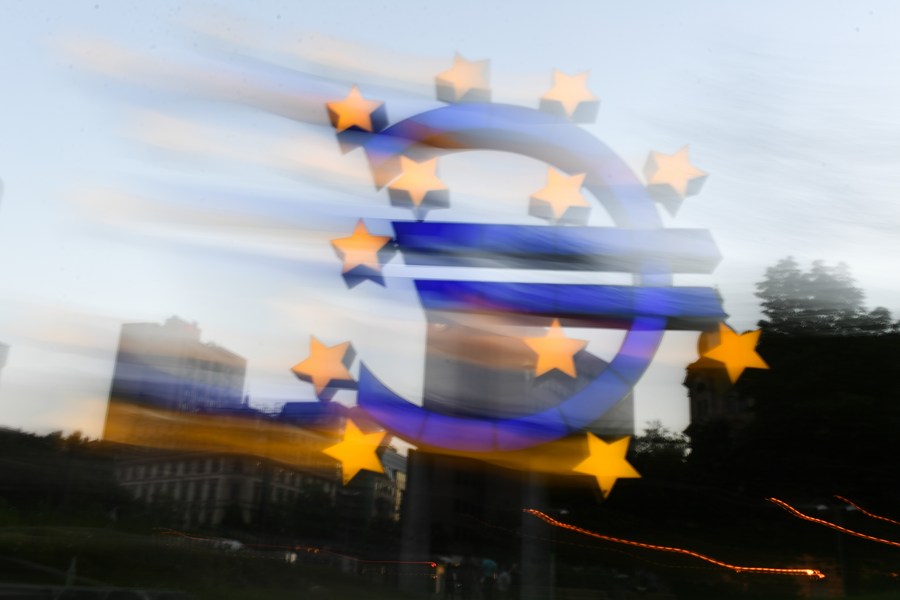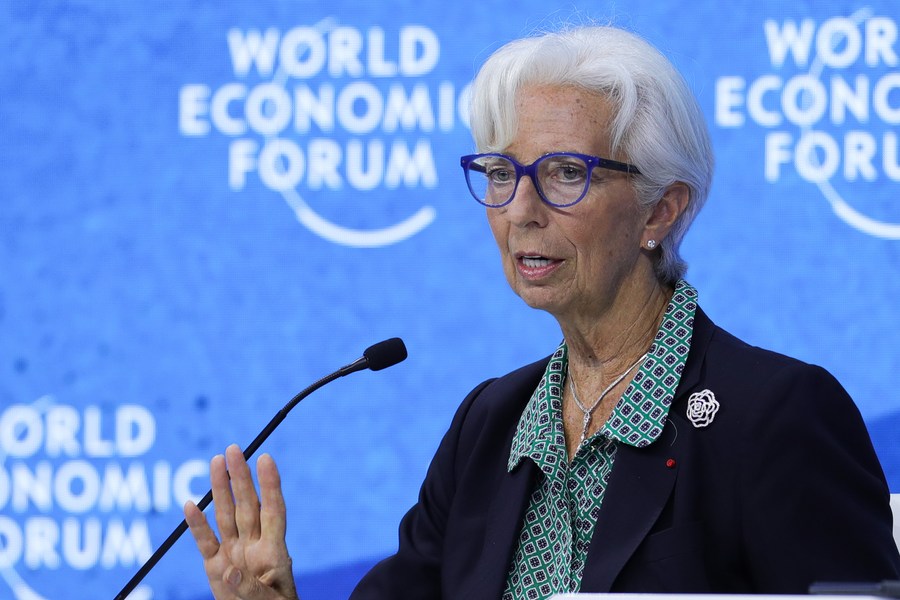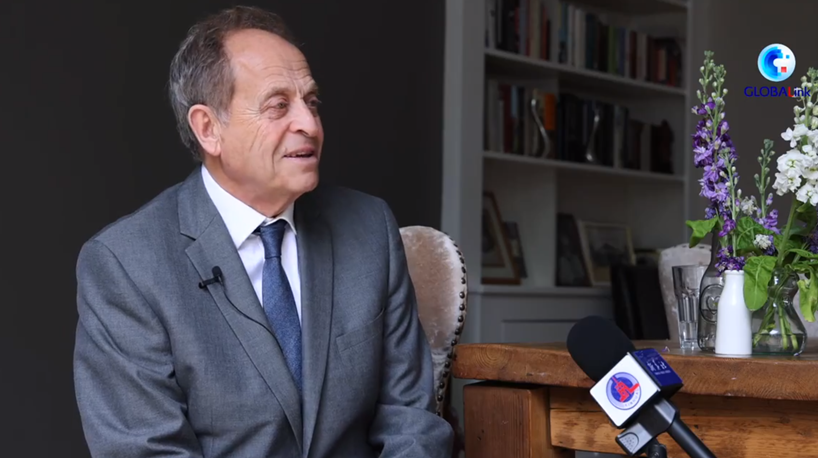
Photo taken on June, 1 2022 shows the Euro sculpture in Frankfurt, Germany. (Xinhua/Lu Yang)
"The biggest problem facing the eurozone economies right now is uncertainty," Giuseppe De Arcangelis, a professor of international economics at Rome's La Sapienza University, told Xinhua.
ROME, July 3 (Xinhua) -- Euro currency zone economies are responding unevenly to the economic turbulence of recent weeks, raising the stakes for the European Central Bank (ECB) as it prepares to raise interest rates for the first time in more than a decade.
The economic indicator most economists are keeping an eye on is inflation. Prices across the 19-nation currency zone rose a record 8.6 percent in June compared to the same month in 2021, according to Eurostat.
That figure broke the previous euro-area high set just a month earlier, when in May year-on-year inflation came in at 8.1 percent.
The European Union began tracking euro area economic data in 1997, two years ahead of the creation of the common currency.
But even eurozone price increases vary, from a low of 5.2 percent in France to 20.0 percent in Estonia in May, which along with Lithuania (where prices rose 18.9 percent) and Latvia (16.9 percent) are the euro area countries hardest hit by rising energy prices sparked by the conflict between Russia and Ukraine.
In Spain, prices rose 10.2 percent in June on an annual basis, the highest rate since 1985. The 8.0-percent rate recorded for Italy in June was its highest since 1986.

Gasoline and diesel prices are displayed near a gas station in Rome, Italy, June 23, 2022. (Photo by Alberto Lingria/Xinhua)
Other indicators were similarly varied: eurozone unemployment levels in the latest reporting period ranged from 2.8 percent in Germany to 13.1 percent in Spain. Economic growth estimates for this year in the euro area varied from just 1.0 percent in Estonia to 5.8 percent in Portugal.
"The biggest problem facing the eurozone economies right now is uncertainty," Giuseppe De Arcangelis, a professor of international economics at Rome's La Sapienza University, told Xinhua.
De Arcangelis was referring to price increases and other impacts stemming from the Ukraine crisis, as well as monetary policy from the ECB, which has said it will raise interest rates this month for the first time since 2011 in an attempt to reduce inflationary pressure by reducing the supply of euros.
"There's only so much the ECB can do, since we are suffering from a negative supply shock and a demand shock at the same time," De Arcangelis said. "But they seem to be willing to reduce inflation even at the cost of economic growth."
Those concerns represent an abrupt about-face for eurozone policy makers who in the past were concerned with ways to stoke inflation by sparking higher demand among European consumers. Now the role is reversed.
The ECB also said it would at least temporarily end its support for government bonds this month, another move that is sending reverberations through financial markets.

European Central Bank (ECB) President Christine Lagarde attends a session of the World Economic Forum (WEF) Annual Meeting 2022 in Davos, Switzerland, May 25, 2022. (Xinhua/Zheng Huansong)
According to media reports, the immediate impact has been a strengthening of demand for bonds from the eurozone's strongest economies like Germany and the Netherlands, and higher interest rates for the most indebted countries from southern Europe, including Italy, Greece, and Spain.
With different economies responding to events in different ways, it increased the challenge for the ECB as it seeks the best overall policy strategy for the 19 eurozone countries.
"Monetary policy is at a difficult juncture," ECB President Christine Lagarde said earlier this week at the bank's annual forum in Portugal, a statement that surprised few observers. ■
















